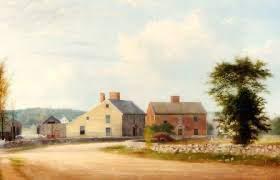In March 1776, Abigail Adams wrote the following plea to her husband, John, who was busy at the Continental Congress in Philadelphia making plans for a soon-to-be-independent country.

“…in the new Code of Laws which I supposed it will be necessary for you to make, I desire you would Remember the Ladies and be more generous and favorable to them than your ancestors. Do not put such unlimited power into the hands of the Husbands. Remember, all Men would be tyrants if they could. If particular care and attention is not paid to the Laidies [sic], we are determined to foment a Rebellion, and will not hold ourselves bound by any Laws in which we have no voice or Representation.”
These words may be inspiring to us but John Adams dismissed them. “As to your extraordinary Code of Laws,” he replied, “I cannot but laugh.” He then likened women to children, “Indians,” and “Negroes.” All of them, he asserted, are rebellious, and none should even think about politics, let alone independence.
Eleven years later, while John was in London serving as the new country’s ambassador to Great Britain, the fifty-five Framers, all men, were in Philadelphia creating a new system of government. As Abigail had predicted, they gave no thought to the ladies. Women are not mentioned in the Constitution. (Actually, neither are men. Only the terms “person,” “persons,” and “people” are used, along with “he,” which was considered a universal pronoun.)

In 1787, when women married, they were legally placed under the thumb of their husbands, and everything they owned became their husbands’ property. The male head of the household was legally entitled to make all management decisions. Nevertheless, Abigail managed the family farm while John sought support in Europe for the Revolutionary War and later served as ambassador. Her management responsibilities and skills, however, did not make her the legal co-owner of the farm.
Women had no more authority to make independent decisions about their personal or financial lives than did children. Like children, most women were not entitled to enter into contracts because, after all, they could not legally promise to pay money they were not allowed to control.
Most of the Framers who signed the Declaration of Independence’s proclamation that “all men [sic] are created equal” undoubtedly agreed with the influential English philosopher John Locke, who asserted that men should rule the household because they are “the abler and the stronger.” So, the Framers didn’t even consider that women would play a role in governing the country. They had certain rights under the Constitution, including the right to habeas corpus, but not to have any influence through voting, running for office, or other forms of political involvement.
There was at least one brief exception, however, outside the cloistered halls in Philadelphia. In 1776, the members of the state constitutional convention in New Jersey defined voters as “all free inhabitants,” as long as they owned a certain amount of property. As a result, widows and women who had never married voted there in the 1780s and 1790s. A newspaper approved by printing a poem that stated, “While woman’s bound, man can’t be free, nor have a fair election.” A man responded that he found the sight of women voters “perfectly disgusting.” In 1797, women rallied around a Federalist candidate running in an election in the town of Elizabeth. His opponent won and, ten years later, introduced a bill removing their right to vote.

The year 2021 marks the 245th anniversary of Abigail’s now-famous letter to John. What do you think each of them would have thought of women’s involvement in governmental decision making today?

We’ve ‘matured’ since then!…naturally I refer to the men who have now agreed that women – and their wives and daughters particularly – are capable of being FULL citizens – with all rights and privileges and responsibilities.
LikeLike